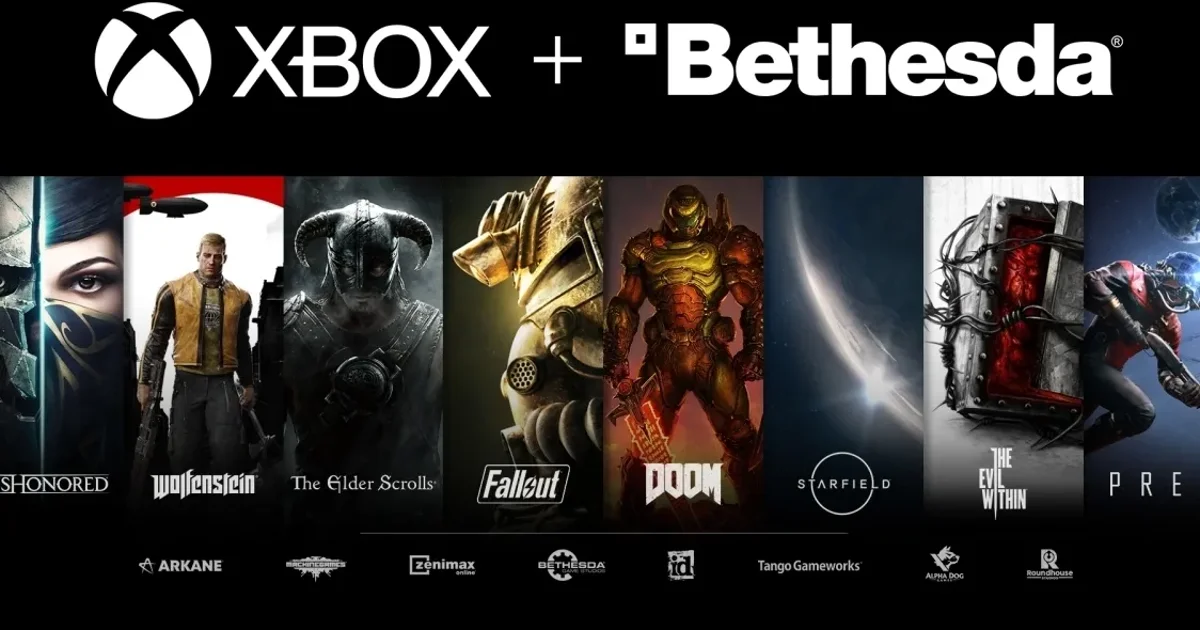
What is the point of Xbox?
Xbox has repeated the same terrible mistakes for over a decade. The reason is simple: its priorities are back-to-front.
The 360 years feel like a lifetime ago. This week, Xbox stunned the industry by announcing it had closed three studios, and repurposed a fourth into another service game support team. This follows the 1900 people laid off across Xbox at the start of this year, and those Xbox employees quietly caught up in the 10,000 layoffs Microsoft made the year before. It has been a disastrous piece of PR self-sabotage, particularly with the reputations of these studios in mind.
Arkane Austin struggled with the uncharacteristic co-op, online shooter elements of Redfall, but before that made the excellent 2017 reboot of Prey and the first, fantastic Dishonored that led to the immersive sim's modern mini-revival. Tango Gameworks, Microsoft's only Japan-based studio that was led, until earlier this year, by horror legend Shinji Mikami, made The Evil Within games and the critically acclaimed, BAFTA-winning breakout Hi-Fi Rush. Roundhouse Studios was founded by the makers of the original Prey, but is now presumably destined to make different coloured leather boots for The Elder Scrolls Online. Alpha Dog made mobile games, an area where Microsoft has been specifically looking to expand. More broadly, for two console generations now, Xbox has floundered under a clear and obvious lack of inventive, attention-grabbing exclusive games. It just bought these studios in 2021.
What is the point of Xbox? Go back through the last 10 years or so, to the end of the 360's golden age and the origins of the Xbox One, and it starts to become clear. The point of Xbox is to achieve, apparently, growth on a massive scale. It is to make more money than it did the year before.
Hi-Fi Rush 2, potential new Dishonored game were reportedly being pitched by now-closed Xbox studios
Read more on Eurogamer.net
This will seem like ancient history now, but bear with me - the mistakes Xbox made in 2013 are, as we'll see, worryingly relevant to the struggles it faces right now. We need to start with the infamous "TV, TV, TV" presentation on stage at E3 2013, where Don Mattrick, Xbox's boss at the time, unveiled plans for the Xbox One. It would be an all-in-one home entertainment device, which was actually quite a nice, interesting, forward-thinking idea (aside from the compulsory bundling-in of the expensive and wildly unpopular Kinect), but the perceived emphasis on non-gaming applications, next to PlayStation's laser targeting of traditional, blockbuster video games and more graphically powerful console, gave the impression Xbox hadn't prioritised its core audience.
It's also the first sign of Microsoft's backwards thinking with the Xbox, where it sought to grow beyond its core audience not by adding to them, by fulfilling its core purpose of creating new games that more people want to play and new ways to play them, but by offering something entirely unrelated and merging the two together.
But the issue with its priorities ran deeper than the hardware. Take the closure of legendary Fable developer Lionhead, in 2016, and the cancellation of Fable Legends that was due to launch that year. As covered in Eurogamer's extensive inside story, it was Microsoft's idea in around 2012, six years after it had bought the once-independent studio, to shift from the single-player RPGs it was known for to a free-to-play, live service multiplayer game in Fable Legends.
The point here, ultimately, is that this cycle has been repeating, and repeating, and repeating, and it does not show any sign of coming to an end. Xbox buys talent, mismanages it in search of impossible scale, and cuts it loose - be that the 20-year experts of Fable, or the battle-scarred makers of Dishonored, or the invigorating new generation behind Hi-Fi Rush. Xbox's leadership clearly knows it's a problem. I believe Phil Spencer and Sarah Bond were utterly sincere when they said they looked at Lionhead and promised themselves not to make the same mistakes again. But to do that, they have to step behind this first, surface-level layer of justification for closing studios, and get to the real cause - not the decisions themselves, but the principles that inform them. The principles that say expertise, creativity and talent are less valuable than the cost to let them flourish.
Dig out the scarlet thread again, and the thing that binds all these moments together couldn't be more clear. The philosophy of a great video game platform holder is that it makes money in order to make more consoles and more games. The philosophy of Microsoft - and by dint of that, Xbox - is evidently that it only makes consoles and games in order to make money. Like so many businesses owned by gigantic, publicly-traded mega-companies, Xbox is now stuck in a cycle of thinking back-to-front. It, and I suspect much of the video game world, no longer knows why it exists.





